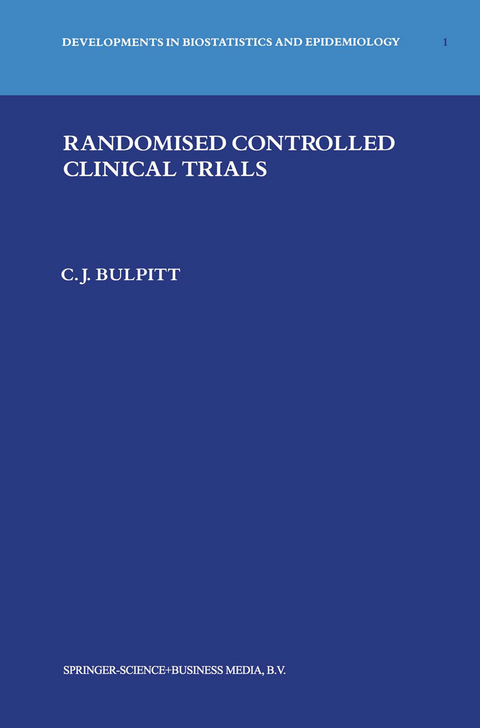
Randomised Controlled Clinical Trials
Springer-Verlag New York Inc.
978-1-4757-6360-7 (ISBN)
1. Introduction.- 2. The history of controlled trials.- 3. Ethical considerations.- 4. The objectives of a randomised controlled trial.- 5. Validity of the results.- 6. Recruitment of subjects.- 7. How to ensure that the control and treated patients are similar in all important respects.- 8. How to ensure that the results are free of bias.- 9. The variability of results.- 10. How many subjects are required for a trial?.- 11. Different trial designs.- 12. Writing the protocol.- 13. Information to be collected during a trial.- 14. The conduct of the trial.- 15. Analysis of the trial results.- 16. The evaluation of subjective well-being.- 17. Early trials on new drugs.- 18. The detection of adverse drug reactions.- 19. Failure to accept the results of randomised controlled trials.- 20. The advantages and disadvantages of randomised controlled trials.- 21. References.
| Reihe/Serie | Developments in Biostatistics and Epidemiology ; 1 |
|---|---|
| Zusatzinfo | 4 Illustrations, black and white; IX, 262 p. 4 illus. |
| Verlagsort | New York, NY |
| Sprache | englisch |
| Maße | 155 x 235 mm |
| Themenwelt | Studium ► Querschnittsbereiche ► Epidemiologie / Med. Biometrie |
| ISBN-10 | 1-4757-6360-3 / 1475763603 |
| ISBN-13 | 978-1-4757-6360-7 / 9781475763607 |
| Zustand | Neuware |
| Informationen gemäß Produktsicherheitsverordnung (GPSR) | |
| Haben Sie eine Frage zum Produkt? |
aus dem Bereich


